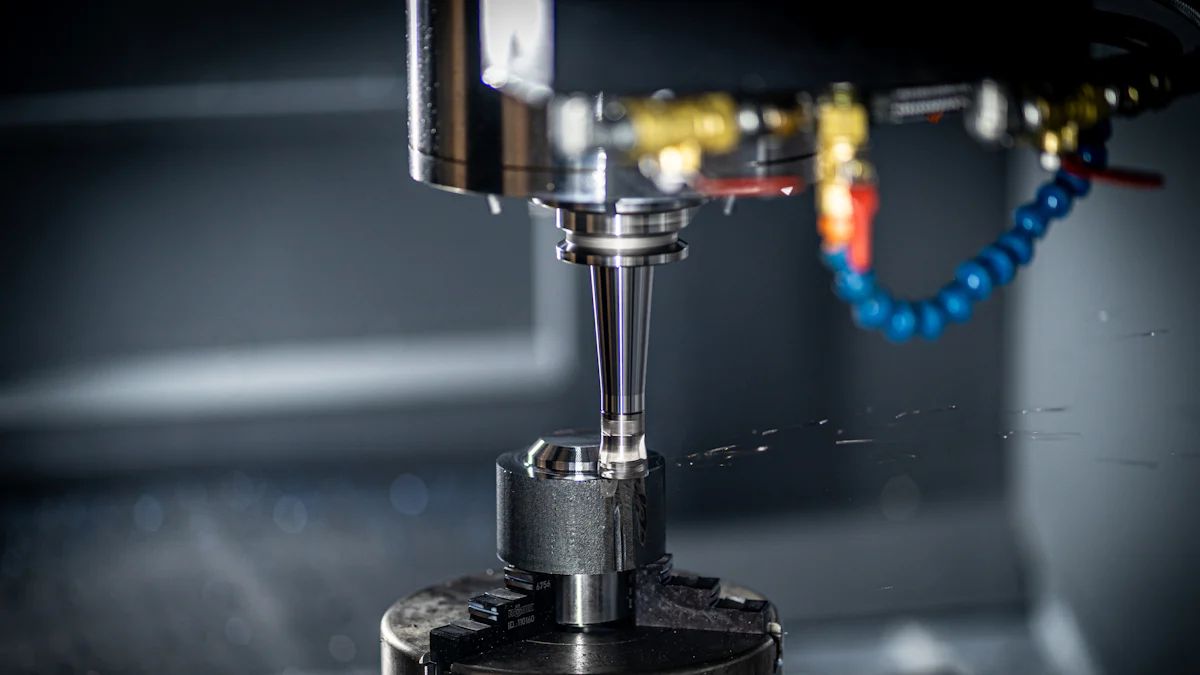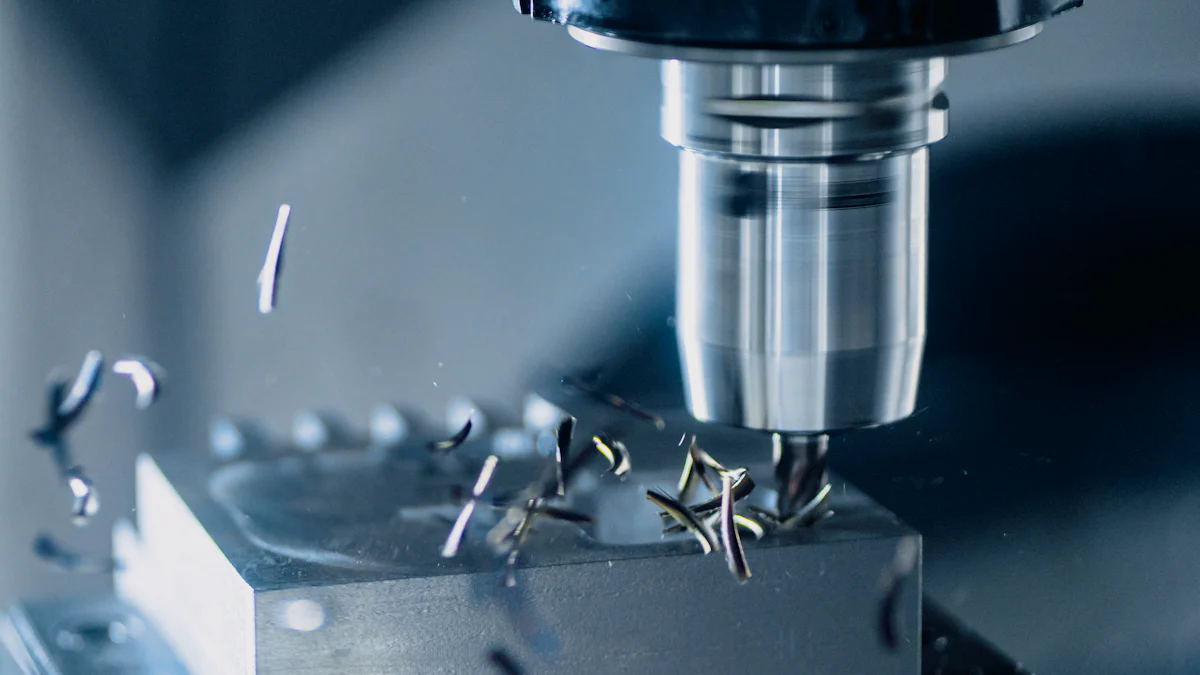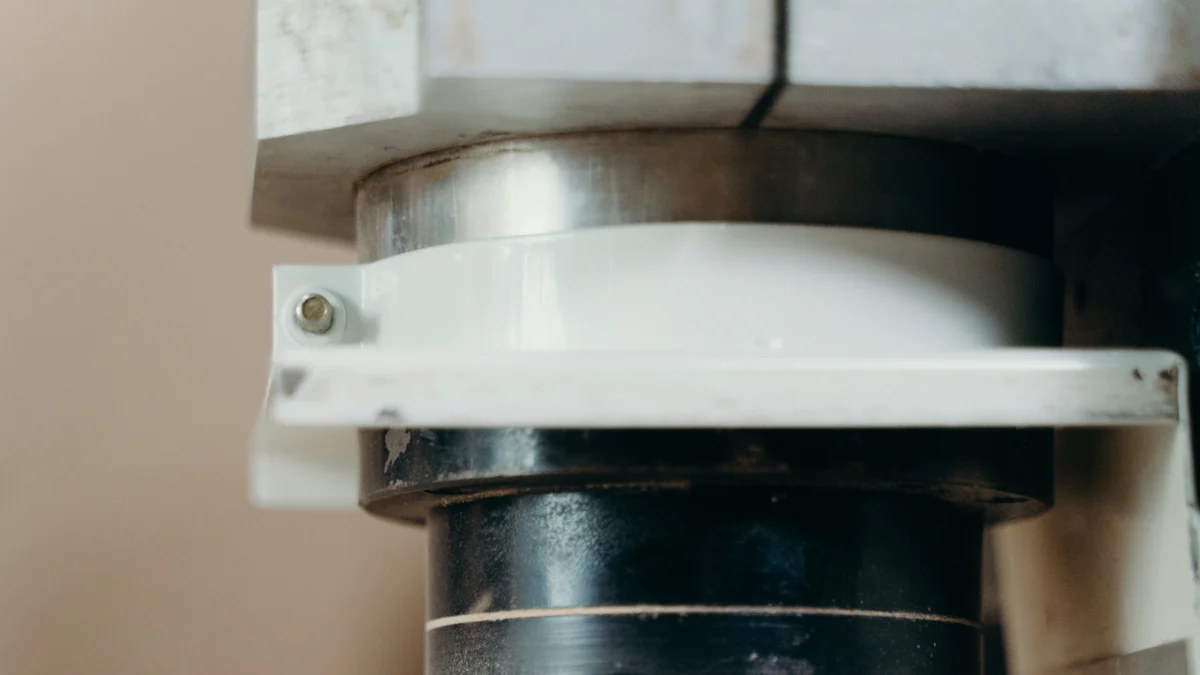How CNC Services Deliver High-Tolerance Parts

CNC machining delivers tight tolerance parts by combining advanced technology with expert craftsmanship. High-precision machines ensure consistent accuracy, while skilled operators select cutting tools, program machines, and adjust parameters to meet exact specifications. This meticulous process minimizes defects and guarantees superior part quality. Tight tolerance machining is essential for industries where even minor deviations can compromise performance. By implementing stringent quality control measures, you can achieve efficient production cycles, reduce labor costs, and ensure reliable, high-performing parts. Advanced tools and precise setups also prevent wear and maintain the integrity of each machine operation.
Key Takeaways
CNC machines use advanced tools and skilled workers to make accurate parts.
Accuracy is very important; small mistakes can cause parts to fail, especially in cars or airplanes.
Using good materials like aluminum or stainless steel makes parts more precise.
Checking quality often, like inspecting during machining, lowers mistakes and saves time.
Picking a trusted CNC service with good tools and certifications ensures parts are made correctly.
Understanding High-Tolerance CNC Machining

What Are Tight Tolerances?
Tight tolerances define the minimal allowable variations in a part’s dimensions. These tolerances are critical when manufacturing parts that require precise fits and consistent performance. For example, a tolerance of ±0.0254 mm indicates a higher level of precision compared to a standard tolerance of ±0.127 mm. Achieving tight tolerance depends on high-precision equipment, well-maintained cutting tools, and careful material selection. Materials like aluminum or stainless steel often allow for better precision due to their machinability. The smaller the number after the ± symbol, the tighter the tolerance, which ensures the accuracy of the final product. You must consider these factors to achieve tight tolerance in your machining projects.
Why Precision Matters in CNC Machining
Precision is the cornerstone of CNC machining. It ensures that parts meet exact design specifications and function as intended. Even minor deviations in measurements can lead to part failure or reduced performance. For instance, in the automotive industry, precision ensures that engine components fit together seamlessly, preventing mechanical issues. Similarly, in aerospace, tight tolerances are vital for safety and reliability. Precision machining not only enhances the quality of parts but also reduces waste and production costs. By prioritizing accuracy, you can deliver high-precision parts that meet the most demanding requirements.
Industries That Rely on Tight Machining Tolerances
Several industries depend on tight machining tolerances to maintain the functionality and reliability of their products. These include:
Medical: For surgical instruments and implants requiring extreme precision.
Aerospace: For components like turbine blades and structural parts.
Automotive: For engine parts and transmission systems.
Defense and military: For weapons and communication systems.
Electronics: For circuit boards and micro-components.
Watchmaking and jewelry: For intricate designs and features.
Oil and gas: For equipment used in high-pressure environments.
Each of these industries demands tight tolerance to ensure safety, performance, and durability. By understanding their unique requirements, you can tailor your CNC machining processes to deliver exceptional results.
Factors Influencing Precision in CNC Machining
Material Properties and Their Impact
The properties of the material you choose play a critical role in achieving tight tolerance. Different materials exhibit unique characteristics that directly affect machining precision. Hardness, for instance, determines the cutting speed and the type of tool required. Harder materials demand robust tools, which can wear out faster, impacting accuracy. Elasticity also influences how a material behaves under stress during machining, potentially leading to deviations in dimensions.
Thermal conductivity is another factor to consider. Materials with high heat sensitivity may expand or contract during machining, causing variations in tolerances. Additionally, the surface finish of the final part depends on the material type. Metals like aluminum often yield smoother finishes compared to harder alloys. By understanding these material properties, you can select the right approach to achieve tight tolerance machined parts.
Role of Advanced CNC Machines
Advanced CNC machines are essential for producing parts with tight tolerances. These machines can achieve tolerances as precise as ±0.0002 inches, ensuring accurate measurements and exceptional quality. High-performance CNC tools perform repeatable movements with unmatched precision, allowing you to create intricate designs and specialized features. Automation further enhances accuracy by reducing human error and maintaining consistency throughout production.
Modern CNC systems also incorporate real-time monitoring, which helps detect and correct deviations during machining. This ensures that each part conforms to the design specifications. By leveraging advanced CNC technology, you can achieve tight tolerance and meet even the most demanding customer requirements.
Environmental and Operational Conditions
Environmental and operational factors significantly influence machining accuracy. Temperature fluctuations can cause materials to expand or contract, leading to deviations from desired tolerances. Humidity also affects certain materials, especially those sensitive to moisture, which can compromise precision.
Operational conditions, such as the skill level of the machinist, are equally important. Experienced operators ensure proper setup and secure the workpiece to prevent movement during machining. Regular calibration of CNC machines is vital to maintain tight tolerance. Misaligned components or worn-out tools can result in inaccurate measurements. By controlling these factors, you can consistently produce high-quality parts with tight tolerances.
Techniques for Achieving Tight Machining Tolerances

Advanced CNC Machinery and Tools
To achieve tight tolerance, you need to rely on advanced CNC machinery and tools. Modern CNC machines, such as 4-axis and 5-axis systems, offer enhanced capabilities for creating complex parts with exceptional precision. These machines surpass the limitations of traditional 3-axis machining by enabling intricate movements and reducing the need for multiple setups.
Recent advancements in CNC technology have further improved machining tolerances. Key innovations include:
Additive manufacturing integration, which combines traditional machining with 3D printing for unmatched flexibility.
Advanced tooling and materials that enhance cutting performance and durability.
In-process monitoring and adaptive control systems that detect deviations and make real-time adjustments.
CNC machining can achieve tolerances as tight as ±0.0005 inches, which is critical for industries requiring exact specifications.
These advancements not only improve precision and repeatability but also enhance the quality of parts, increase productivity, and minimize downtime. By leveraging these tools, you can achieve tight tolerance machined parts that meet the most demanding customer requirements.
Quality Control in CNC Machining
Quality control plays a vital role in maintaining tight tolerances. Implementing stringent quality assurance measures ensures that your final products meet the highest standards of precision and reliability. This approach reduces defects and improves production efficiency.
One effective method is deploying an on-machine inspection system. This system uses a small probe to check machining accuracy during the process, guaranteeing tight tolerances without waiting for post-production inspections. Additionally, strict quality control measures throughout the machining process help prevent and catch mistakes early, avoiding costly errors.
Inspection of finished parts is important, but on-machine inspection systems provide a proactive way to maintain precision during machining.
By prioritizing quality control, you can consistently deliver high-quality parts that meet critical industry standards.
Skilled Operators and Programming Expertise
Even with advanced machinery, skilled operators and accurate programming are essential for achieving tight tolerance. Experienced machinists know how to set up and adjust CNC machines, interpret machining measurements, and diagnose issues. Their expertise ensures that the machining process stays within tolerance limits.
Accurate programming through CAD/CAM software is equally important. It generates precise machining instructions that align with design specifications. Operators must also calibrate machines, select appropriate tools, and make real-time adjustments to maintain accuracy.
A skilled operator bridges the gap between machine capabilities and production goals. Their knowledge and attention to detail ensure that every part meets the required tolerances and features, even in high-speed precision machining environments.
Choosing the Right CNC Service Provider
Questions to Ask About Tight Tolerance Capabilities
Selecting the right CNC service provider requires asking the right questions to ensure they can meet your tight tolerance needs. Start by inquiring about their inspection and quality control processes. Providers offering advanced inspection systems, such as CNC CMM or RAM optical inspection systems, demonstrate their commitment to precision. Ask about their experience in your industry. Familiarity with specific sectors, such as medical, aerospace, or automotive, ensures they understand the unique requirements and standards of your field.
Additionally, request information about their ability to achieve tight tolerance consistently. Providers should explain how they maintain accuracy during machining and what measures they take to prevent deviations. These questions help you evaluate their expertise and ensure they can deliver high-quality machined parts that meet your expectations.
Evaluating Certifications and Equipment
Certifications and equipment are critical indicators of a CNC provider’s reliability. Look for certifications such as ISO 9001, AS9100D, or ISO 14001:2015. These certifications reflect adherence to strict quality management standards and environmental practices. Providers with certifications like ISO 45001:2018 or participation in the Controlled Goods Program demonstrate their commitment to safety and compliance.
Examine their equipment capabilities as well. Reliable providers should have access to advanced machinery, including lathes, mills, water jet cutters, and laser engraving machines. These tools enable them to handle complex machining tasks with precision. By evaluating certifications and equipment, you can ensure the provider has the resources to meet your tight tolerance requirements.
Reviewing Past Work and Client Feedback
A provider’s past work and client feedback offer valuable insights into their reliability. Review case studies or portfolios to assess their experience in delivering high-tolerance parts. Providers with a proven track record in your industry are more likely to understand your project’s critical requirements.
Client testimonials and reviews also reveal their reputation for quality and customer service. Positive feedback highlights their ability to meet deadlines, maintain precision, and deliver exceptional results. A strong reputation in the market reflects consistent performance and customer satisfaction. By analyzing these factors, you can confidently choose a CNC service provider that aligns with your needs.
Tight tolerances are essential in cnc machining, ensuring parts fit together seamlessly and function reliably. They reduce machining costs, improve consistency, and enhance performance. Achieving these tolerances requires advanced equipment, precise tools, and skilled operators. Selecting a reliable cnc service provider is equally critical. Providers with advanced inspection systems, like CNC CMM, ensure your parts meet exact specifications. Their expertise guarantees high-quality results, aligning with industry standards. By prioritizing precision and partnering with the right provider, you can produce dependable, high-tolerance parts that meet your project’s demands.
FAQ
What is the tightest tolerance CNC machining can achieve?
CNC machining can achieve tolerances as tight as ±0.0002 inches. This level of precision depends on advanced machinery, skilled operators, and proper environmental controls. You should confirm the provider’s capabilities to ensure they meet your project’s specific requirements.
How do you ensure consistent precision in CNC machining?
Consistency requires regular machine calibration, high-quality tools, and skilled operators. Advanced CNC systems with real-time monitoring also help maintain accuracy. You should verify that your provider uses these practices to deliver reliable results.
Which materials are best for tight-tolerance machining?
Materials like aluminum, stainless steel, and brass are ideal due to their machinability and stability. Plastics like PEEK and Delrin also work well for specific applications. You should choose materials based on your project’s design and performance needs.
How does CNC machining compare to 3D printing for precision?
CNC machining offers superior precision and tighter tolerances compared to 3D printing. While 3D printing excels in rapid prototyping, CNC machining is better for producing high-tolerance parts with consistent quality. You should select the method based on your project’s complexity and accuracy requirements.
Why is quality control critical in CNC machining?
Quality control ensures parts meet exact specifications and industry standards. It reduces defects, minimizes waste, and improves production efficiency. You should prioritize providers with robust inspection systems to guarantee high-quality results.
See Also
Streamlined CNC Services Ensuring Precision In Manufacturing
Fulfilling CNC Machining Standards For Precision Parts Production
Investigating CNC Machining Solutions For Accurate Manufacturing
Perfecting CNC Machining Techniques For Precision Component Creation
The Impact of CNC Technology On Advanced Precision Manufacturing
About US
Follow Us
Your prototype holds unparalleled significance, and we deeply value its uniqueness. Collaborating with you during the preparation phase for running your prototype or parts is a commitment we gladly embrace. Whether it's a single part or a complex assembly, we are dedicated to selecting the optimal tools and pathways to bring your envisioned product to life.
At Precision Fab CNC Machining, we specialize in producing parts for prototypes, short runs, and high-volume production. Our prototyping machine capabilities extend across metal, plastic, and wood machining, with welding fabrication services available to complement and finalize your prototype if required.
Address
Address: Room320 10F, Building A,Nanshan international building, Dayawan District, Huizhou, Guangdong, 516001 China
Contacts
billy@timaycnc.com

